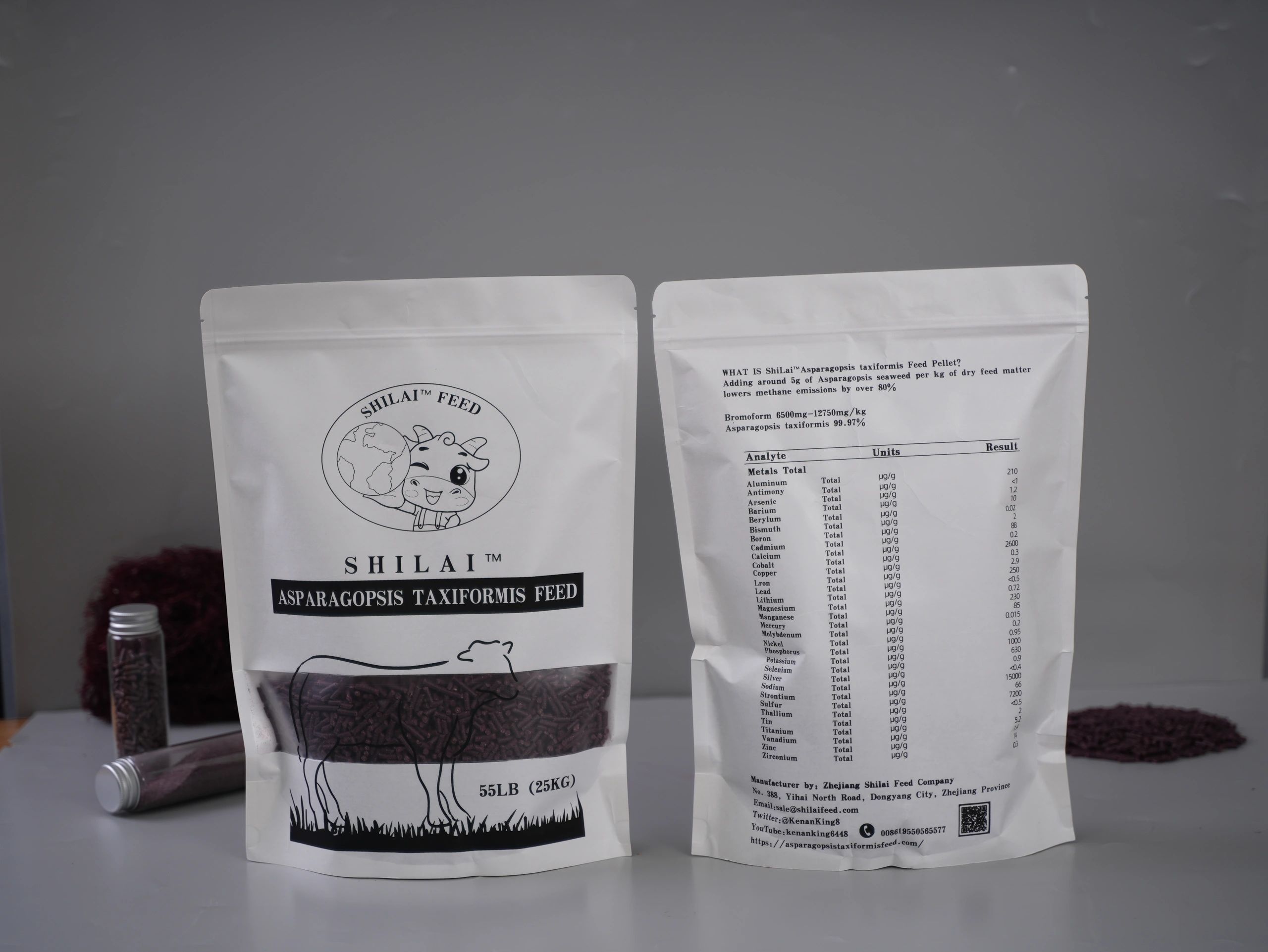Global food production systems generate a considerable amount of greenhouse gases, chiefly from livestock rearing.
Methane is a powerful greenhouse gas that has a much higher warming potential than carbon dioxide, posing urgent climate risks.
The red seaweed Asparagopsis taxiformis is under study for its capacity to reduce methane emissions from livestock digestion.
Contained within the alga is a bioactive molecule that suppresses methanogenesis in the rumen and reduces total methane emissions.
Formulating feeds with Asparagopsis taxiformis has delivered encouraging trial data that point toward meaningful reductions in livestock methane.
- Additionally, Asparagopsis taxiformis provides further value propositions alongside emissions reductions.
- Stronger digestive performance in animals
- Chance to build circular supply chains around seaweed production
Although additional studies and scale-up work are required, Asparagopsis taxiformis holds strong potential as a durable means to cut livestock emissions.
Exploring the Commercial Promise of Asparagopsis taxiformis Powder as a Feed Ingredient
A powdered or concentrated form of Asparagopsis taxiformis has the potential to reshape animal feed approaches and outcomes.
The seaweed offers a combination of nutritive and bioactive properties that benefit animal performance.
Using A. taxiformis powder in feed recipes has reduced methane in pilot work while also contributing necessary trace elements.
Additional controlled studies are essential to determine ideal inclusion rates, processing methods, and safety for scale-up.
Asparagopsis taxiformis and the Next Era of Sustainable Animal Production

The species is increasingly seen as an intervention to lessen the environmental footprint of conventional livestock production.
By cutting methane emissions when added to feed, the algae could help farmers materially lower their environmental footprint.
Experiments have shown possible improvements in animal condition and performance when Asparagopsis is included in diets.
Large-scale implementation and chronic impact assessment remain to be proven, yet preliminary results are highly encouraging.
Curbing Enteric Methane via Asparagopsis Feed Inclusion
Asparagopsis is recognized as a strong candidate for reducing the methane burden from ruminant livestock.
Asparagopsis contains active molecules that alter rumen microbial activity and limit methane generation.
- Trials and studies have repeatedly observed large methane declines with Asparagopsis supplementation.
- Asparagopsis integration into feed is viewed as a sustainable strategy to reduce agricultural greenhouse gases.
- Ranchers and livestock operators are showing heightened interest in testing Asparagopsis in diets.
Asparagopsis: The Marine Ingredient Shaping Sustainable Livestock Systems
A promising marine-derived solution has appeared, with Asparagopsis taxiformis capable of cutting methane in ruminants.
- Inclusion of the seaweed in animal feeds produced significant methane cuts in research trials with clear climate implications.
- The innovation creates potential to advance food security and environmental stewardship simultaneously.

Within the portfolio of climate mitigation approaches, Asparagopsis is notable for its novel potential to lower methane from animals.
Optimizing Methane-Cut Feed with Asparagopsis taxiformis
Research targets include processing optimization and dosage determination to increase A. taxiformis impact on methane reduction.
The Science Behind Asparagopsis taxiformis's Methane-Lowering Effects

Scientists attribute the effect to Asparagopsis compounds that impair the methanogenesis process in the rumen.
Bromoform and analogous molecules in the algae are believed to block methanogenesis, and research is clarifying efficacy and safety considerations.
Adding Asparagopsis into Rations to Support Sustainable Livestock Systems
The combination of nutritive content and functional compounds makes Asparagopsis suitable for practical feed inclusion.
The seaweed’s inclusion can enrich feed nutrient profiles, support gut health, and exhibit antimicrobial or immune-supportive properties.
Asparagopsis taxiformis as a Nature-Based Path to Greener Food Production
Asparagopsis taxiformis represents an emerging, nature-based intervention to lower agricultural emissions and support sustainable food systems.
- Additionally, the species offers a useful blend of nutrients that complement feed formulations.
- Researchers and practitioners are investigating diverse applications of the species across farming and food industries.
Widespread incorporation of Asparagopsis into feeds could materially lower the environmental burden of livestock farming.
How Asparagopsis Feed Additives Can Improve Animal Health and Performance
Asparagopsis is being noted for its ability to reduce methane while also supporting animal health and production metrics.
Use in diets has been associated with improved nutrient absorption and feed conversion, which can support weight gain and overall condition.
Observed functional properties include antioxidant and immune-supportive actions that could protect animal health.
The momentum behind sustainable livestock practices enhances the appeal of Asparagopsis as studies and commercialization advance.
Towards Carbon Neutrality with Asparagopsis-Enhanced Feed Solutions
As agriculture confronts demands for lower emissions, Asparagopsis emerges as a tangible tool to help reduce methane burdens.
- The leading hypothesis is that the seaweed’s constituents suppress methanogenic microbes and disrupt methane synthesis in the rumen.
- Trials and experiments have produced promising results, showing substantial methane reductions when Asparagopsis is included in diets.
Asparagopsis-based feeds may enable a transition to more climate-friendly and resilient agricultural practices.